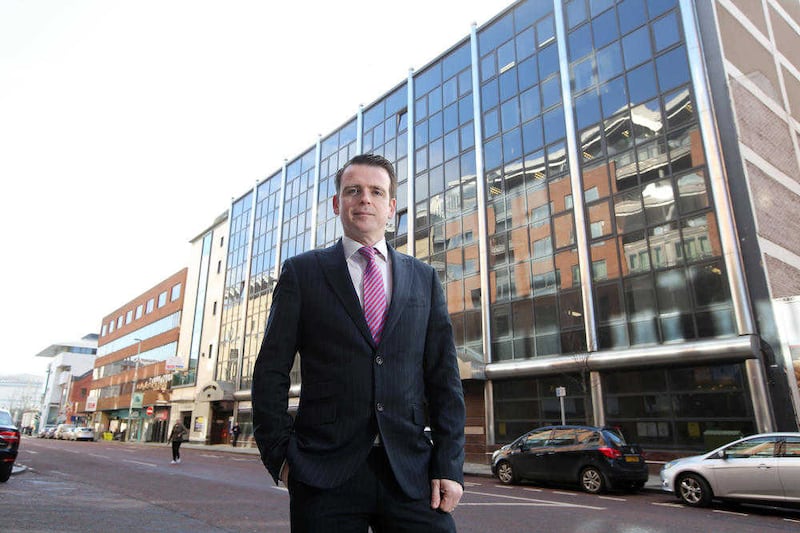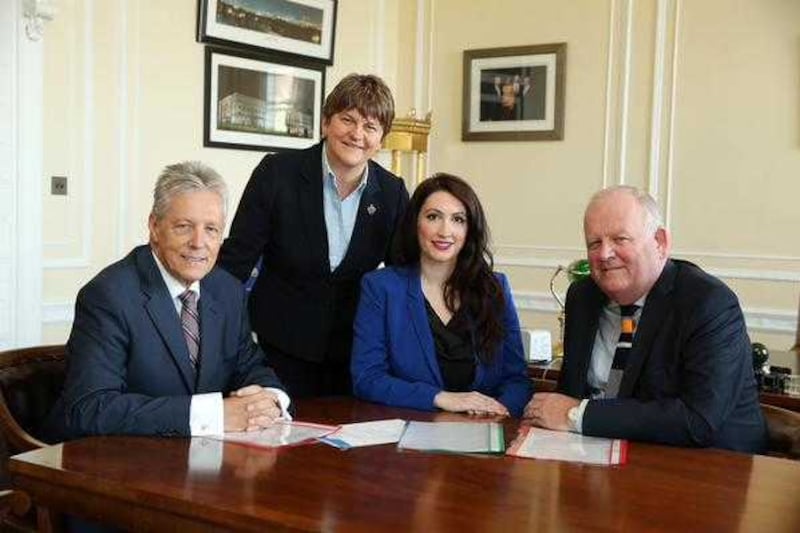STOPPING virtually all discretionary spending across every government department in the last year has helped balance Stormont's books, finance officials admitted yesterday.
A year ago the north's finances were said to be "on the edge of a precipice", prompting Finance Minister Arlene Foster to demand the departments reign in all spending - right down to teas, coffees and biscuits for visitors.
Only "inescapable" or contractual commitments continued to be funded, and this looking after the pennies has led to the equivalent of £33 million being saved, according to DFP.
In the wake of the "fresh start" political accord on Tuesday, the Assembly was updated yesterday on the outcome of the November monitoring round, headlined by an extra £47.6 million being set aside to alleviate pressures in the health service.
The bulk is for elective care and diagnostics, leading to 40,000 extra assessments and 15,000 treatments in additional operations and treatments by the end of next March.
This will go some way to reducing excessive waiting lists for both outpatients and inpatients and could also lead to the private sector picking up some of the slack.
The various department bid for £91.4 million in resource spending - effectively running costs - and £59.9 million for capital spending.
During the monitoring round yesterday, the resource allocations came in at £87.4 million but just £13.7 goes towards capital spend.
Among the biggest-loser departments is Regional Development. It had sought £21.9 in running costs and was approved £19.1m.
It also bid for £31.5m in capital projects, principally for essential road maintenance (£23m) but also for Londonderry Port (£2m), new buses (£1.3m) and the Connswater Community Greenway (£1.2m).
But its total allocation in the normal monitoring round comes in at less than a sixth of that at just £5 million.
However, emerging from the 'Fresh Start' deal Ms Foster confirmed there will be extra financial support of £16.5 million resource expenditure for roads "to help to keep vehicles moving safely through severe winter weather conditions as well as carrying out basic maintenance on our roads and keeping our street lights on".
Meanwhile the Department for Education will benefit from additional resource funding of £15 million to help meet the increased demand for special education needs for pupils in both mainstream and special schools.
The increase in budget will also deal with urgent and planned maintenance in our school buildings and address the deterioration of the schools’ estate
Other reallocations within the November monitoring round include:
· Dard - £3.9m for TB compensation;
· Dcal - £1.1m for health & safety obligations;
· Deti - £4m capital spend for Invest NI;
· Dfp - £2m for the rate rebate replacement project;
· Doj - £2.7m for the forensic lab and prisons estate








